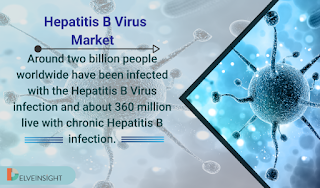Phenylketonuria (PKU) Market Research Report 2030 | Phenylketonuria (PKU) Market
What is Phenylketonuria?
Phenylketonuria is a rare genetic condition that causes an amino alkanoic acid called phenylalanine to create within the body. Phenylalanine is found altogether in proteins and a few artificial sweeteners.

Phenylalanine hydroxylase is an enzyme your body uses to convert phenylalanine into tyrosine, which your body must create neurotransmitters like epinephrine, norepinephrine, and dopamine. Phenylketonuria is caused by a defect within the gene that helps create phenylalanine hydroxylase.
Phenylketonuria Sign & Symptoms
Newborns with Phenylketonuria initially don't have any symptoms. However, without treatment, babies usually develop signs of Phenylketonuria within a few months.
Phenylketonuria signs and symptoms can be mild and may include:
● A musty odor in the breath, skin, or urine
● Neurological problems
● Eczema
● Microcephaly
● Hyperactivity
● Intellectual disability
● Delayed development
● Psychiatric disorders
Phenylketonuria Treatment Options
There is currently no cure for Phenylketonuria, but the condition is controllable through proper diet. The main way to treat Phenylketonuria is to eat a special diet that limits foods containing phenylalanine.
When your infant is old enough to eat solid foods, you need to avoid letting them eat foods high in protein. These foods include eggs, cheese, nuts, milk, beans, and chicken, etc.
Phenylketonuria Epidemiology Insights
The National Phenylketonuria Alliance estimates that there are currently 16,500 people living with Phenylketonuria in the United States.
Germany has the highest number of cases, i.e., 8,317, followed by France with 7,523 cases and therefore the United Kingdom with 6,564 cases. While Spain has the smallest number of cases with 2,490 in 2020.
In 2020, the diagnosed Phenylketonuria prevalent cases in Japan were 1,015.
Phenylketonuria Market Insights
Currently, there is no cure for Phenylketonuria (PKU); however, the prevailing treatment is predominantly through dietary restriction of phenylalanine (Phe) to the minimum required for normal growth, supplemented with specifically designed medical foods. For many years, the only treatment for PKU has been the adherence to the strict low phenylalanine diet for life.
Therefore, the first line of therapy for Phenylketonuria treatment is dietary therapy, where a low Phe diet is supplemented with amino acid formulas, which commences soon after diagnosis. The goal of treatment for PKU is to keep plasma phenylalanine levels within 120–360 µmol/L (2–6 mg/dL), which is achieved through carefully planned and monitored diet. Limiting the child’s intake of phenylalanine, cautiously as it is an essential amino acid. A carefully maintained diet can prevent intellectual disability as well as neurological, behavioral, and dermatological problems.
Phenylketonuria Emerging Therapy Assessment
Companies across the globe are diligently working toward the development of novel treatment therapies with a considerable amount of success over the years. Key players, such as Synlogic, Censa Pharmaceuticals, Codexis, Homology Medicines, etc., are developing therapies for the treatment of patients with Phenylketonuria (PKU).

Comments
Post a Comment